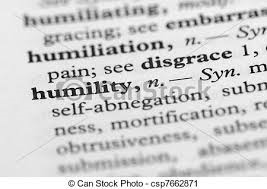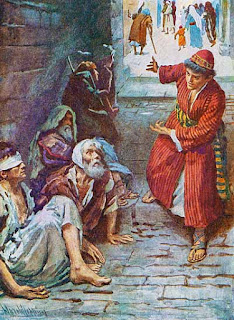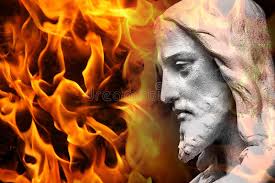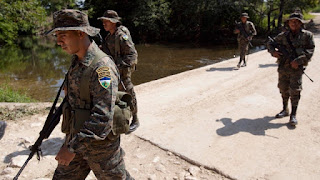Wisdom 3:1-6
1 Corinthians 13:1-13
Matthew 5:1-12
____________________________________________________________
There’s a story told about St. Kateri Tekakwitha (the first Native American woman declared a saint by the Church) that reminded me of Barbara.
Saints
are everywhere. Holiness is not limited to nuns, or priests, or deacons. It is
something attainable by everyone. And holiness is the first step to sainthood.
When word
of the Mohawk convert’s passing circulated throughout New France in the
Americas in the spring of 1680, the news was a simple declaration: “The
saint is dead.”
Didn’t
we all feel that way when we heard the shocking news of Barbara’s sudden
passing? Our holy and saintlike friend was gone too soon.
There’s
a deep Jesuit connection to St. Kateri (thanks to documentation by Jesuit
missionaries of her life of holiness in the 17th Century). The
miracle that led to her Canonization in 2012 happened in our own backyard when
a young Lummi Nation boy with a lethal, flesh-eating bacteria was suddenly
cured one day after a relic of then Blessed Kateri was laid on a pillow next to
his head during a prayer service at Seattle Children’s hospital. His miracle
cure could not be explained by doctors.
Today,
Jake Finkbonner is a recent college graduate with plans to become a doctor
himself. The power of a life touched by a saint.
All of
us were touched by the holy life of our friend Barbara.
If you
open the worship aid to the back page, you’ll see a cherished picture of Barbara
with one of our native friends on the streets of downtown Seattle. Rick
Williams is a well-known native wood carver.
St. Kateri
Tekakwitha is the patron saint of native Americans. She’s also the patron saint
of ecology and the environment, something near and dear to Barbara’s heart. I envision
St. Kateri and Barbara chatting together in heaven now.
How perfect
that her husband Paul chose today’s Gospel reading from Matthew because Barbara
lived the Beatitudes every day.
It was
who she was. With her family. With her friends and choir mates. With those she
met on the street with Sacred Encounters.
We
started Sacred Encounters on Holy Week 2021. Barbara was one of the first to
step forward from St. Patrick to join this shared ministry with Christ Our
Hope.
She
confided in me as she joined our team: “I’m afraid of homeless people.”
I told
her, “You’ve come to the right place.”
Barbara
knew the poor were blessed. Jesus says so in today’s Gospel.
It’s just that some of our unhoused friends can be a little scary.
What does
Jesus mean by “blessed” in Beatitudes? What’s he really saying here?
The
word has two meanings in Hebrew.
One
meaning points “more to what is inward…
while the other denotes… what comes to us from
without.”[1]
Eight
in number, the Beatitudes paint a picture of Jesus’ vision for the Kingdom here
on earth. Everything considered “cursed” or “unfortunate” in our human eyes
becomes blessed in Jesus’ eyes.
Jesus
turned his world (and our world) upside down with the Beatitudes and forces us
to face our preconceived notions about things.
After
our very first session walking the streets of downtown Seattle, showing love to
those experiencing homelessness, Barbara turned to me and said, “I’m no longer
afraid.”
Her
eyes had been opened by sharing Jesus’ ministry of love on the margins.
Indeed,
“Blessed are the poor in spirit.”
Jesus’
words fueled the cookies she baked and the sandwiches she and Paul made
together for the unhoused, the miles she walked to share the ministry of
presence with them, and the heart she poured out to the poor and marginalized.
She
understood that the Beatitudes are not necessarily about “the poor in spirit,
the meek, those who mourn, those who hunger and thirst after righteousness, the
merciful, the pure in heart, the peacemakers and those who suffer persecution
in their search for holiness—these are not different people or kinds of people,
but different demands made on EVERYONE who wants to be a disciple of Christ.”[2]
Jesus
Christ wants us all to become living saints by living the Beatitudes. Like our beloved
Barbara.
In First
Corinthians, we heard Jesus’ law of love. St. Paul shared this with the people
of Corinth to get them to change their heartless ways.
At the
time of his letter, there were great divisions in the Christian community in
Corinth. The well-heeled were treating their poorer neighbors as second-class
citizens by making them sit in the back of the Church.
Privilege
guaranteed proximity. This is not what Jesus expects of us. And Paul knew it.
It’s
why he used his letter to crack heads, in a love-filled way.
If
ever we’re ever scolded, don’t we all want to be scolded by someone who uses
the love-filled words of St. Paul?
And
remember, the Greek word used here for love actually translates to charity. That
changes the entire context of this famous passage.
Charity (love) is what drove
Barbara to serve on the margins. This form of love flowed from her weekly on
the streets of Seattle.
Barbara’s
sudden passing at such a young age has left us all reeling and feeling lost.
Paul, Henry,
and Nate, you are surrounded by hundreds of people who share your mourning and
who loved and respected this amazing and humble woman. Thank you for sharing
her with us.
To Barbara’s mother Janet, and sisters Shelley
and Cathy and brother Andy, know Barbara is right now sharing time Stephen in
heaven. And will be watching over you all in this earthly life.
To all of Barbara’s St. Pat’s friends, her
music and actions will ring in our hearts forever. She’s now joined the choir
of angels. Can’t you just imagine her voice now? It must be glorious.
To all
of Barbara’s Sacred Encounters friends, her spirit walks with you every time
you’re on the streets of this fair city, spreading the Gospel of love. She’s
now watching over all our unhoused friends.
The soul of our righteous friend Barbara is
in the hands of God,
and no torment will ever touch her. In the eyes
of the foolish she seemed to have died, but she is at peace.
Yes, the saint is dead.
But she is now alive in Christ
forever.
[1]
Jamieson, R., Fausset, A. R., & Brown, D. (1997). Commentary Critical
and Explanatory on the Whole Bible (Vol. 2, p. 17). Oak Harbor,
WA: Logos Research Systems, Inc.
[2]
Saint Matthew’s
Gospel. (2005). (p. 48). Dublin; New York: Four Courts Press;
Scepter Publishers.
















